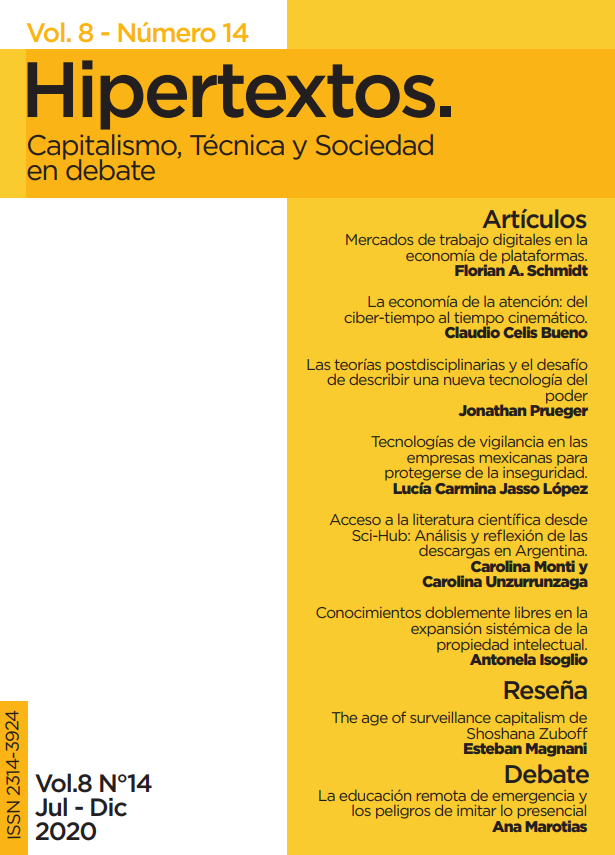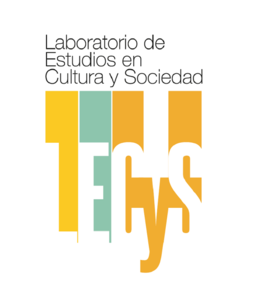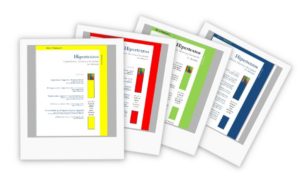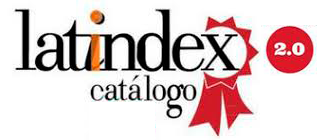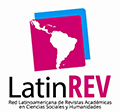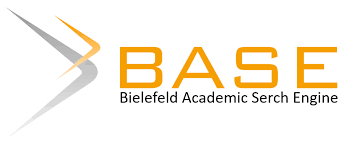Conocimientos doblemente libres en la expansión sistémica de la propiedad intelectual
DOI:
https://doi.org/10.24215/23143924e023Palabras clave:
capitalismo informacional, derecho de autor, dominio público, software libre, base de datosResumen
Los conocimientos doblemente libres se caracterizan por circular con restricciones mínimas de uso, pero también porque su aprovechamiento está exento de remunerar a sus productores. Este trabajo busca comprender los flujos de conocimientos que adoptaron este carácter en la década de 1980, a partir del estudio de caso. Las unidades de análisis son los proyectos GNU, Perl y GenBank. En sus configuraciones materiales cognitivas, hallamos conocimientos objetivos, subjetivos, intersubjetivos y biológicos, que se concretizaron en bienes informacionales regulados por licencias de derechos de autor o el dominio público.
Referencias
Balka, K. (2011). Open Source Product Development: The Meaning and Relevance of Openness. Wiesbaden: Gabler Verlag.
Bauwens, M. (2005). The Political Economy of Peer Production. CTheory, (26), s/p. Recuperado de https://journals.uvic.ca/index.php/ctheory/article/view/14464
Benkler, Y. (2006). The wealth of networks: How social production transforms markets and freedom. New Haven y London: Yale University Press.
Benson, D. A.; Boguski, M. S.; Lipman, D. J.; Ostell, J. y Ouellette, B. F. (1998). GenBank. Nucleic Acids Research, 26 (1), 1‐7. Recuperado de https://doi.org/10.1093/nar/26.1.1
Bhidé, A. (1992). Bootstrap finance: the art of start-ups. Harvard Business Review, 70 (6), 109-117. Recuperado de http://library.cust.edu.pk/teacher_resources/Cases&Articles/Entrepreneurship/BootstrapFinance-TheArtofStart-Ups.pdf
Blondeau, O. (2004). Génesis y subversión del capitalismo informacional. En Blondeau, O.; Dyer Whiteford, N.; Vercellone, C.; Kyrou, A.; Corsani, A.; Rullani, E.; Moulier Boutang, Y.; Lazzarato, M. (eds.). Capitalismo cognitivo, propiedad intelectual y creación colectiva. (31-48). Madrid: Traficantes de Sueños. Recuperado de https://www.traficantes.net/libros/capitalismo-cognitivo-propiedad-intelectual-y-creaci%C3%B3n-colectiva
Borkenhagen, C. (2017). Death of the secret recipe: “Open source cooking” and field organization in the culinary arts. Poetics, (61), 53-66. Recuperado de https://doi.org/10.1016/j.poetic.2017.01.003
Brunak, S.; Danchin, A.; Hattori, M.; Nakamura, H.; Shinozaki, K.; Matise, T.; Preuss, D. (2002). Nucleotide Sequence Database Policies. Science, 298 (5597), 1333. Recuperado de https://doi.org/10.1126/science.298.5597.1333b
Budapest Open Access Initiative. (2002). Budapest Open Access Initiative. Recuperado de https://www.budapestopenaccessinitiative.org/read
Castells, M. (1995). La ciudad informacional. Tecnologías de la información, estructuración económica y el proceso urbano-regional. Madrid: Alianza Editorial.
Castells, M. (2000). La era de la información: Economía, sociedad y cultura. Volumen I. Madrid: Alianza Editorial.
Choudhuri, S. (2014). Bioinformatics for Beginners Genes, Genomes, Molecular Evolution, Databases and Analytical Tools. London: Elsevier.
Cochrane, G.; Karsch-Mizrachi, I. y Nakamura, Y. (2011). The International Nucleoide Sequence Database Collaboration. Nucleic Acids Research, 39(1), 15-18. Recuperado de https://doi.org/10.1093/nar/gkq1150
Fernández Macías, E. (2002). Una aproximación sociológica al fenómeno del software libre. Revista Internacional de Sociología, 60 (31), 167-184. Recuperado de https://doi.org/10.3989/ris.2002.i31.709
Free Software Foundation [FSF]. (2017a [1989]). GNU General Public License, version 1. GNU Operating System. Recuperado de https://www.gnu.org/licenses/old-licenses/gpl-1.0.html
Free Software Foundation [FSF]. (2017b). Overview of the GNU System. GNU Operating System. Recuperado de https://www.gnu.org/gnu/gnu-history.en.html
Free Software Foundation [FSF]. (2019a [1985]). El manifiesto de GNU. El sistema operativo GNU. Recuperado de https://www.gnu.org/gnu/manifesto.es.html
Free Software Foundation [FSF]. (2019b). Linux and the GNU System. GNU Operating System. Recuperado de https://www.gnu.org/gnu/linux-and-gnu.en.html
Free Software Foundation [FSF]. (2019c). ¿Qué es el software libre? El sistema operativo GNU. Recuperado de https://www.gnu.org/philosophy/free-sw.es.html#f1
Free Software Foundation [FSF]. (2020). Licenses. GNU Operating System. Recuperado de https://www.gnu.org/licenses/licenses.en.html
Goldman, R. y Gabriel, R. P. (2005). Licenses. En Goldman, R. y Gabriel, R. P. (eds). Innovation Happens Elsewhere: Open Source as Business Strategy. (111-136). San Francisco: Morgan Kauffman Publishers.
GOSH Community Forum. (2016). Hardware Científico Global y Abierto (GOSH) Manifesto. Gathering for Open Science Hardware. Recuperado de http://openhardware.science/gosh-manifesto/spanish/
Himanen, P. (2001). The hacker ethic, and the spirit of the information age. New York: Random House Trade Paperbacks.
Jones, P. B. C. (2000). The commercialization of bioinformatics. Electronic Journal of Biotechnology, 3 (2), 33-34. Recuperado de https://scielo.conicyt.cl/scielo.php?script=sci_arttext&pid=S0717-34582000000200002&lng=es&tlng=en
Kornberg, A. (2001). La hélice de oro. Aventuras biotecnológicas: el recorrido de la ciencia a los negocios. Bernal: Universidad Nacional de Quilmes Ediciones.
Lessig, L. (2004). Free culture: How big media uses technology and the law to lock down culture and control creativity. New York: The Penguin Press.
Levy, S. (2010). Hackers: Heroes of the Computer Revolution. Sebastopol: O’Reilly Media.
Lund, A. y Zukerfeld, M. (2020). Corporate Capitalism's Use of Openness. Profit for Free? London: Palgrave Macmillan.
Mako Hill, B. (2007). Free Culture Advanced. Benjamin Mako Hill. Recuperado de https://mako.cc/writing/free_culture-fsf_bulletin_200707.html
Malamud, C. (2007). Open Government Working Group. Public.Resource.Org. Recuperado de https://public.resource.org/open_government_meeting.html
Massachusetts Institute of Technology. (2004). MIT leaves behind a rich history in Tech Square. MIT News Office. Recuperado de http://news.mit.edu/2004/techsquare-0317
Molloy, J. C. (2011). The Open Knowledge Foundation: Open Data Means Better Science. PLoS Biology, 9 (12), 1-4. Recuperado de https://doi.org/10.1371/journal.pbio.1001195
Moody, G. (2002). Rebel Code: The Inside Story of Linux and the Open Source Revolution. New York: Basic Books.
Moulier-Boutang, Y. (2004). Riqueza, propiedad, libertad y renta en el capitalismo cognitivo. En Blondeau, O.; Dyer Whiteford, N.; Vercellone, C.; Kyrou, A.; Corsani, A.; Rullani, E.; Moulier Boutang, Y.; Lazzarato, M. (eds.). Capitalismo cognitivo, propiedad intelectual y creación colectiva. (107–128). Madrid: Traficantes de Sueños. Recuperado de https://www.traficantes.net/libros/capitalismo-cognitivo-propiedad-intelectual-y-creaci%C3%B3n-colectiva
Open Source Initiative. (2020). Frequently Answered Questions. Open Source Initiative. Recuperado de https://opensource.org/faq#permissive
Organización Mundial del Comercio. (1994). Acuerdo sobre los Aspectos de los Derechos de Propiedad Intelectual relacionados con el Comercio. Anexo 1C del Acuerdo de Marrakech. (341-374). Recuperado de https://www.wto.org/spanish/docs_s/legal_s/27-trips_01_s.htm
Pomerantz, J. y Peek, R. (2016). Fifty shades of open. First Monday, 21 (5), s/p. Recuperado de https://doi.org/10.5210/fm.v21i5.6360
Public.Resource.Org. (2007). Open Government Data Principles. Public.Resource.Org. Recuperado de https://public.resource.org/8_principles.html
Real Academia Española. (2014). Diccionario de la lengua española. 23.ª edición. Recuperado de https://www.rae.es/diccionario-de-la-lengua-espanola/la-23a-edicion-2014
Ritchie, D. M. y Thompson, K. (1973). The UNIX TimeSharing System. The fourth ACM symposium on Operating system principles. Nueva York. Recuperado de https://pdos.csail.mit.edu/6.828/2004/readings/ritchie74unix.pdf
Rullani, E. (2004). El capitalismo cognitivo: ¿Un déjà-vu? En Blondeau, O.; Dyer Whiteford, N.; Vercellone, C.; Kyrou, A.; Corsani, A.; Rullani, E.; Moulier Boutang, Y.; Lazzarato, M. (eds.). Capitalismo cognitivo, propiedad intelectual y creación colectiva. (99–106). Madrid: Traficantes de Sueños. Recuperado de https://www.traficantes.net/libros/capitalismo-cognitivo-propiedad-intelectual-y-creaci%C3%B3n-colectiva
Stallman, R. (1985). Realizable Fantasies: The GNU Manifesto. Dr. Dobb’s Journal, 10 (3), 30-34.
Stallman, R. (1986). What is the Free Software Foundation? GNU’s Bulletin, 1 (1), 8-9. Recuperado de https://www.gnu.org/bulletins/bull1.txt
Stallman, R. (1999). The GNU Operating System and the Free Software Movement. En DiBona, C.; Ockman, S. y Stone, M. (eds.). Open Sources: Voices from the Open Source Revolution. (31-38). Boston: O’Reilly & Associates. Recuperado de https://smaldone.com.ar/documentos/libros/opensources.pdf
Stallman, R. (2002). The GNU Project and Free Software. En Gay, J. (ed.). Free Software, Free Society: Selected Essays of Richard M. Stallman. (15-71). Boston: Free Software Foundation.
Stallman, R. (2020). A Serious Bio. Richard Stallman’s personal site. Recuperado de https://stallman.org/biographies.html
Steinmueller, W. E. (1995). The U.S. Software Industry: An Analysis and Interpretive History. Berkeley: University of California.
Stevens, H. (2013). Life Out of Sequence. A data-driven history of Bioinformatics. Chicago: The University of Chicago Press.
Stevenson, M. (2018). Having it both ways: Larry Wall, Perl and the technology and culture of the early web. Internet Histories, 2 (3-4), 264-280. Recuperado de https://doi.org/10.1080/24701475.2018.1495810
Stoyan, H. (1955). Early LISP History (1956-1959). En Boyer, R. S.; Schneider, E. S. y Steele, G. L. (eds.). LFP '84: Proceedings of the 1984 ACM. Symposium on LISP and functional programming. (299–310). Recuperado de https://doi.org/10.1145/800055.802047
Strausser, B. J. (2011). The experimenter's museum: GenBank, natural history, and the moral economies of biomedicine. Isis, 102 (1), 60‐96. Recuperado de https://doi.org/10.1086/658657
Urquhart, M. A. y Hewson, M. A. (1983). Unemployment continued to rise in 1982 as recession deepened. Monthly Labor Review, 3-12. Recuperado de https://www.bls.gov/opub/mlr/1983/02/art1full.pdf
U.S. Copyright Office. (2020). Appendix A. The Copyright Act of 1976. Copyright Law of the United States and Related Laws Contained in Tıtle 17 of the United States Code. (335-338). Washington: U.S. Copyright Office. Recuperado de https://www.copyright.gov/title17/title17.pdf
U.S. Congress. (1980). Public Law 96-517. Recuperado de https://www.govinfo.gov/content/pkg/STATUTE-94/pdf/STATUTE-94-Pg3015.pdf
Yin, R. K. (2014). Case Study Research: Design and Methods. Thousand Oaks: SAGE Publications.
Zukerfeld, M. (2005). Bienes Informacionales y capitalismo. En Arboleya, J. (ed.). Pensar a Contracorriente, Concurso Internacional de Ensayo. Volumen II. (215-244). La Habana: Editorial de Ciencias Sociales.
Zukerfeld, M. (2007). Bienes Informacionales y Capitalismo Cognitivo. Conocimiento, información y acceso en el siglo XXI. Razón y Palabra, 11 (54), 1-15.
Zukerfeld, M. (2010a). Capitalismo y Conocimiento: Materialismo Cognitivo, Propiedad Intelectual y Capitalismo Informacional. Volumen I. (Tesis inédita de doctorado). Facultad Latinoamericana de Ciencias Sociales, Buenos Aires.
Zukerfeld, M. (2010b). Capitalismo y Conocimiento: Materialismo Cognitivo, Propiedad Intelectual y Capitalismo Informacional. Volumen II. (Tesis inédita de doctorado). Facultad Latinoamericana de Ciencias Sociales, Buenos Aires.
Zukerfeld, M. (2010c). Capitalismo y Conocimiento: Materialismo Cognitivo, Propiedad Intelectual y Capitalismo Informacional. Volumen III. (Tesis inédita de doctorado). Facultad Latinoamericana de Ciencias Sociales, Buenos Aires.
Zukerfeld, M. (2014). Todo lo que usted quiso saber sobre Internet pero nunca se atrevió a googlear. Hipertextos: Capitalismo, Técnica y Sociedad en debate, 1 (2), 64-103. Recuperado de http://revistahipertextos.org/wp-content/uploads/2014/09/Hipertextos_no.2.64-103.pdf
Zukerfeld, M. (2017a). Knowledge in the Age of Digital Capitalism: An Introduction to Cognitive Materialism. London: University of Westminster Press. Recuperado de https://DOI.org/10.16997/book3
Zukerfeld, M. (2017b). The tale of the snake and the elephant: Intellectual property expansion under informational capitalism. The Information Society, 33 (5), 243–260. Recuperado de https://doi.org/10.1080/01972243.2017.1354107
Zukerfeld, M. (2017c). Typologies of knowledge: a reexamination from the perspective of cognitive materialism. Prometheus, 35 (1), 3–20. Recuperado de https://doi.org/10.1080/08109028.2017.1357259

